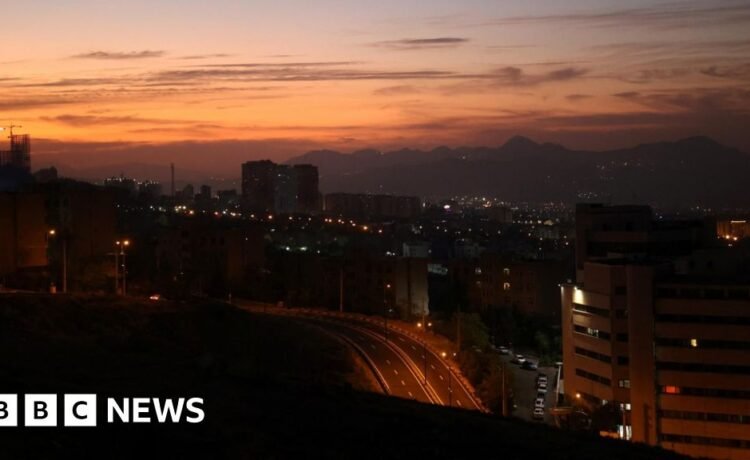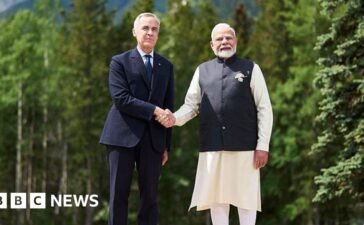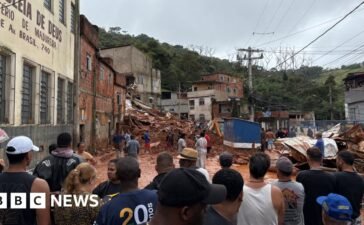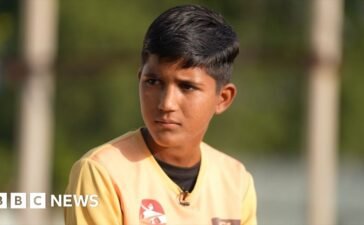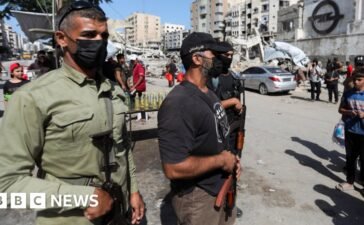Israeli strikes on Iran, in retaliation for Iran’s missile attacks earlier this month, have killed four Iranian soldiers, Iran’s army said.
The Israel Defense Forces (IDF) said it targeted missile factories and other sites near Tehran and western Iran early on Saturday.
Iran’s Foreign Ministry said it has a responsibility to defend itself, but added that Iran “recognises its responsibilities towards regional peace and security,” a statement viewed as relatively conciliatory.
Israeli retaliation for an Iranian barrage of almost 200 ballistic missiles fired towards Israel on 1 October had been widely expected for weeks.
Tehran had said the attack was in retaliation for the killing of Hamas’s political leader Ismail Haniyeh on Iranian soil in July. Many missiles were shot down by Israel and its allies but a small number struck central and southern Israel.
Iranian authorities said sites in Tehran, Khuzestan and Ilam provinces were attacked. The military claimed that the attacks had been successfully countered, although there was “limited damage” in some locations.
Following the Israeli strikes, Iranian state media carried footage showing traffic flowing normally in several cities, while school and sports activities were reportedly being held as scheduled.
The Israeli military announced Saturday’s operation shortly after explosions were reported in Iran. IDF spokesperson Rear Adm Daniel Hagari said the military had demonstrated its preparedness “to defend the state of Israel”.
He also warned if Iran started a new round of escalation, Israel would be “obliged to respond”.
The US and Britain have both urged Iran not to strike back following the latest strikes, with President Joe Biden’s administration calling for an end to the cycle of violence.
Senior US administration officials said the US was informed of Israel’s strikes beforehand, and that Washington had no involvement in them.
The attacks did not include Iranian oil infrastructure or nuclear facilities – targets the Biden administration had urged Israel not to hit – an official said.
The official said the US had encouraged Israel for weeks to conduct a response that was “targeted and proportional with low risk of civilian harm” and suggested that was “precisely what transpired” on Saturday evening.
However, Prime Minister Benjamin Netanyahu’s office issued a statement saying Israel chose its targets “in accordance with its national interests, and not according to American dictates”.
UK Prime Minister Sir Keir Starmer said Israel had the right to defend itself against “Iranian aggression” and echoed calls for Iran to avoid retaliation, saying the UK would work to “de-escalate the situation across the region”.
But Russia and other countries in the region, including US allies Jordan and Saudi Arabia, accused Israel of escalating the conflict.
Qatar expressed “deep concern about the serious repercussions that may result from this escalation”, while Jordan described the attack as a “dangerous escalation”.
Russian foreign ministry spokeswoman Maria Zakharova said “what is needed is to stop provoking Iran to retaliate, and to get out of the spiral of uncontrollable escalation”.
The extent of the Israeli strikes and their precise targets were still unclear on Saturday morning.
Iran’s aviation authority briefly suspended flights but announced that they would restart from 09:00 local time (06:30 BST).
Hooman, a 42-year-old factory employee, was working in Tehran when he heard the blasts, he told news agency AFP.
“It was an echoing sound… terrible and horrifying,” the agency quoted him as saying. “Now that there is war in the Middle East, we are afraid that we will be dragged into it.”
Israeli air strikes also targeted sites in central and southern Syria, Syrian state media reported.
Following the Israeli strikes, Hezbollah fired 80 projectiles across the border into Israel on Saturday afternoon, according to the IDF.
Later, AFP news agency reported the Iran-backed group fired a series of rockets at five residential areas in northern Israel, including the outskirts of Krayot near Haifa.
You Might Also Like
A ‘delicate’ balance for Canada and a ‘win-win’ for Modi as Carney visits India
The latest derailment in trade talks occurred after former Prime Minister Justin Trudeau made a bombshell public accusation against India...
Floods and landslides in Brazil kill at least 25
Hundreds of people have been displaced and dozens are missing, with rescue operations still ongoing in Juiz de Fora. Source...
How football is helping girls fight against forced marriage
Two sisters in an Indian village talk about how football has changed their lives and helped them push back against...
Hamas is reasserting control in Gaza despite its heavy losses fighting Israel
The war had left the group's disciplined military units shattered into guerrilla forces, and most of its leaders killed; Gaza's...





